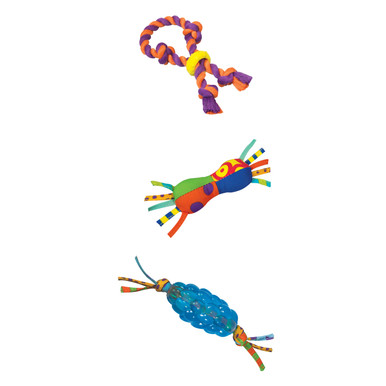You just brought a new puppy home, and you’re enjoying watching him play, eat, and socialize with other dogs. One thing that you’ve noticed is that puppies sleep a lot, and you’re wondering: Is your puppy sleeping the normal amount? How much do puppies sleep?
Or should you be concerned that your dog sleeps all day long? Perhaps you believe he’s not getting enough sleep.
By finding out the answers to your questions, you can discover if your puppy’s development is on track or if you need to try to make some changes to his sleep schedule.
How Much Puppies Sleep
So how much do puppies sleep? Typically, your puppy needs between 16 and 20 hours of sleep per day. That means he’s getting a good night’s sleep and taking a bunch of naps throughout the day as well. This is the normal amount of sleep for a puppy that’s already been weaned.
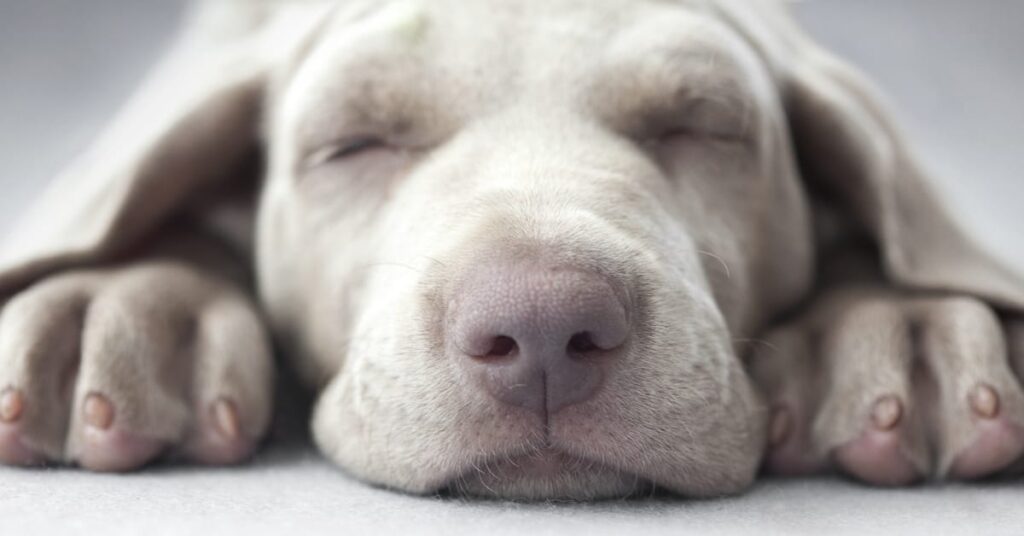
Sleep Disorders in Puppies
If you think there is something wrong with your puppy’s sleep schedule, he may have a sleep disorder.
For instance, he could have narcolepsy, a nervous system sleep disorder that is primarily seen in young dogs. If your puppy has narcolepsy, he may suddenly collapse on his side and go to sleep, typically after playtime or something else that has excited him.
If you pet him or you make a loud noise, he will abruptly wake up. Narcolepsy is usually caused by a genetic disorder that affects dog breeds like poodles, Labrador Retrievers, and Doberman Pinschers. Additional causes include immune system dysfunction, inactivity, and obesity.
Your puppy may also be experiencing insomnia, REM behavior disorder, or sleep apnea. If his sleep patterns seem off to you, contact your vet to look into whether or not he has a sleep disorder.
Creating a Sleep Routine for Your Puppy
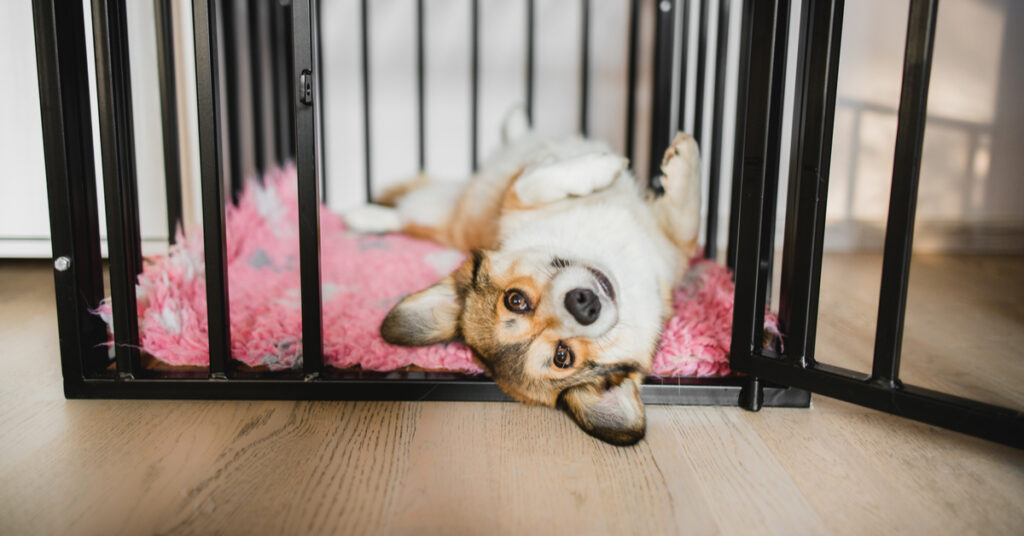
A good sleep schedule for your puppy will depend on his age and activity level.
At eight weeks of age, young puppies can sleep from 12 a.m. to 6 p.m. and take a bathroom break at 3 a.m. At 12 weeks of age, they can sleep from 11 p.m. to 7 a.m., with a potty break at 4 a.m. Finally, at 16 weeks of age, puppies can go from 12 a.m. to 6 a.m. and will likely be able to sleep through the night without waking up.
If you’re home with your pup most of the time, you can schedule naptime for him as well.
For his daytime naps, schedule five two-hour naps when he is eight weeks old. When he’s 12 weeks old, get him to take at least four two-hour naps, and when he’s 16 weeks old, schedule a minimum of three two-hour naps.
Potty Training & Waking Up to Use the Bathroom
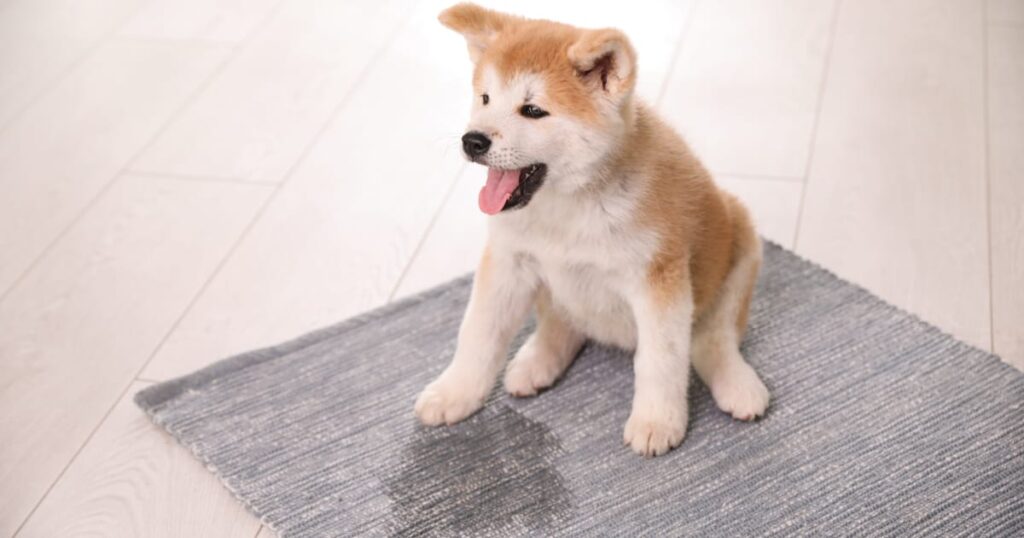
Like human babies, your puppy’s nighttime sleep is going to be disrupted because he needs something. While human babies wake up to eat, puppies wake up to go to the bathroom. Your puppy’s sleep schedule is going to depend on how often he needs to get up to pee.
Because his bladder is small, he can only go two or three hours without taking a bathroom break by the time he’s two to three months old and settling into his new home with you.
If you hear him whining or barking in the middle of the night, he may be signaling to you that he needs a potty break. Let him out of his crate, go outside with him, and reward him with a treat when he’s finished his business.
By house training him with positive reinforcement, you can ensure both you and your puppy get more restful sleep as soon as possible.
Creating a Sleeping Area for Your Puppy

You should aim to kennel train your dog starting when he’s a puppy. Give him positive reinforcement when doing crate training by rewarding him with a treat. Eventually, your doggy will learn to go in it without needing a treat.
It’s a good idea to put a comfortable dog bed into his crate with a blanket, as well as cover his wire crate with a blanket. That way, he’ll feel like he’s enclosed in a cave-like structure that’s nice and cozy.
Giving him his own space like this will help him establish good sleeping habits. At night, you may start to notice him going into his crate on his own.
Note: It’s best for puppies to sleep on their own. Wait until yours grows up into an adult dog if you want him to sleep in the same bed as you. This is safer for you and your pup and won’t interfere with crate training. Plus, it’ll be much less of a hassle if your dog accidentally pees or poops in his crate instead of in your bed.
Ensuring Your Puppy Is Tired
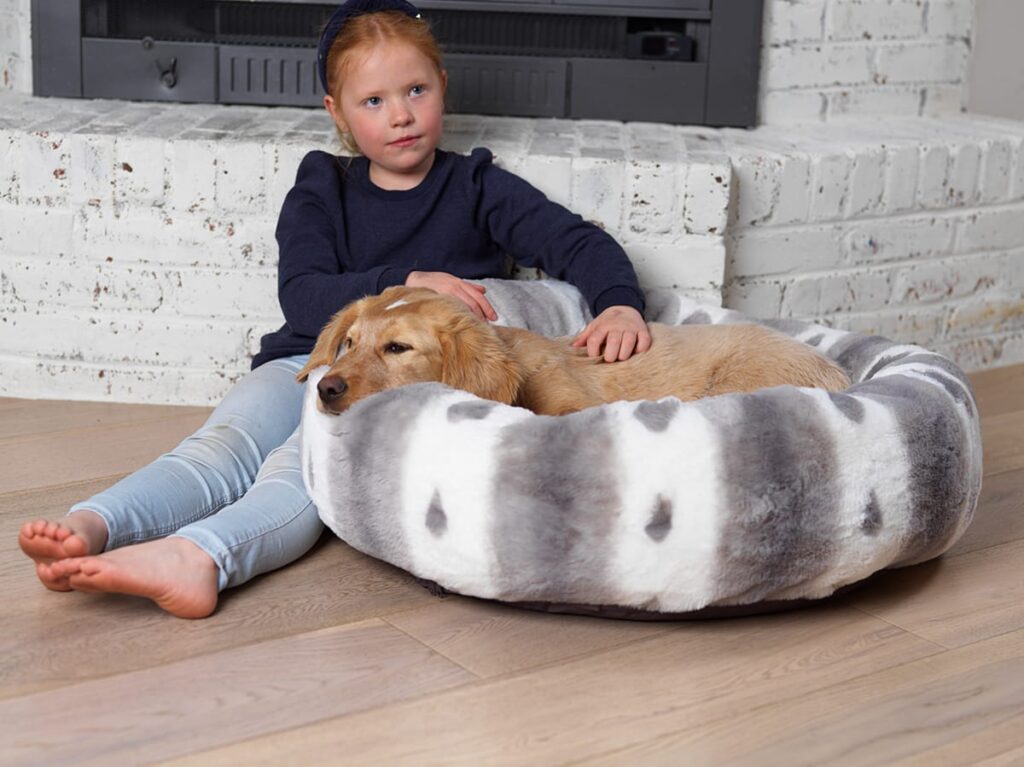
Now that you know the answer to, “How much do puppies sleep?” you can figure out how to tire your new puppy out.
You can ensure your puppy will get the right amount of Zzzs by giving him walks every day and spending 10 to 20 minutes playing with him a few times at night. Playtime could include throwing a toy and teaching him how to fetch as well as playing tug of war with him.
For the perfect playtime toys for your new puppy, check out this blog post for everything you need. It covers everything new puppy parents need for their growing, four-legged bundle of joy.
You could also try the Mini Dental Chew Starter Pack, which is gentle on your puppy’s teeth and gums. These teething toys are ideal for tug of war, fetch, and chewing activities for dental health.
Mini Dental Chew Starter Pack for Puppies – 3 Pack, Multi, Mini
$11.99 $9.99
The Petstages Mini Dental Chew Starter Pack is the perfect gift for the puppy in your life. This trio of dental chew toys is designed to address a number of dental concerns so that your puppy stays happy and healthy! The set comes with one Mini Orka Pinecone made from durable TPE rubber and knotted cotton streamers to help massage your puppy’s gums while they chew. This toy even bounces and floats for more…
Making Sure Your Puppy Is Healthy
Along with making sure your puppy is sleeping enough, give him ample socialization, playtime, and walks and feed him healthy dog food.
Of course, you’ll want to get in as many puppy cuddles throughout the day as possible. If he is on the right sleep schedule, he will grow up to be a happy and healthy puppy that fills your life with joy.
